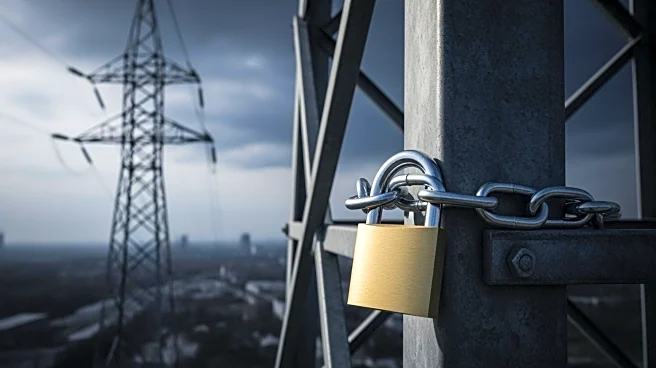What's Happening?
Utility companies are increasingly becoming targets for identity-related fraud, with the Federal Trade Commission's Consumer Sentinel Network reporting approximately 28,000 cases of stolen identities used
to open new utility accounts in 2024, alongside 2,000 cases involving existing accounts. This marks a significant increase from pre-COVID levels, although it remains below the pandemic-era peak. The issue is exacerbated by utilities' lack of legal obligation to report fraud incidents, leading to underreporting and a hidden scope of the problem. Fraudsters exploit low-friction onboarding processes and delayed detection due to billing cycles, allowing them to use services before red flags appear. Additionally, service protections and low legal risks make utilities attractive targets for criminals seeking free services and opportunities to resell or rent accounts.
Why It's Important?
The rise in utility fraud has broader implications beyond unpaid bills. It serves as a gateway for fraudsters to simulate legitimate behavior, build credit histories, and establish synthetic identities that can infiltrate banks, fintechs, and government programs. This systemic issue poses direct losses for utility providers and facilitates larger fraud schemes across the financial sector. Addressing this challenge requires utilities to adopt stronger verification methods, monitor payment patterns, and collaborate across providers to track fraud trends. Failure to act could lead to increased financial losses and compromised consumer trust, highlighting the need for proactive measures to safeguard operations and protect consumers.
What's Next?
Utilities are urged to implement layered, proactive approaches to combat fraud. This includes adopting tools like device fingerprinting and identity-link analysis for stronger onboarding verification, monitoring synthetic identity patterns, auditing referral programs, and flagging unusual usage or payment patterns. Cross-provider data sharing is recommended to identify repeat offenders and track broader fraud trends. As fraud evolves, utilities must adapt quickly to protect their operations and consumers, preventing the problem from escalating further.
Beyond the Headlines
Utility fraud not only impacts financial operations but also poses ethical and legal challenges. The lack of regulatory oversight and underreporting contribute to a hidden systemic problem, requiring utilities to balance consumer protection with operational efficiency. The use of synthetic identities and stolen credentials in fraud schemes highlights vulnerabilities in identity verification processes, necessitating a reevaluation of current practices to ensure robust security measures are in place.









